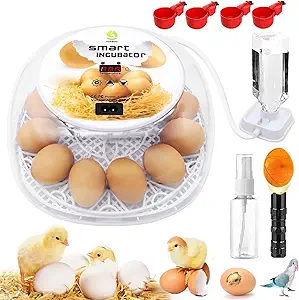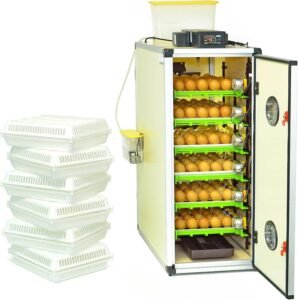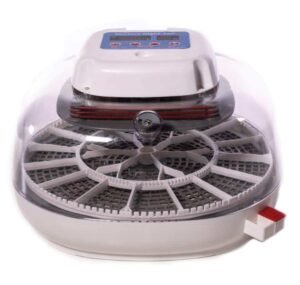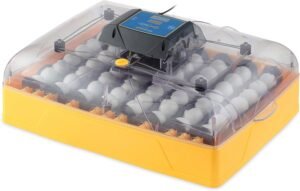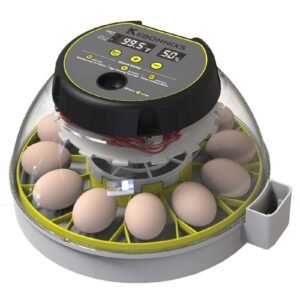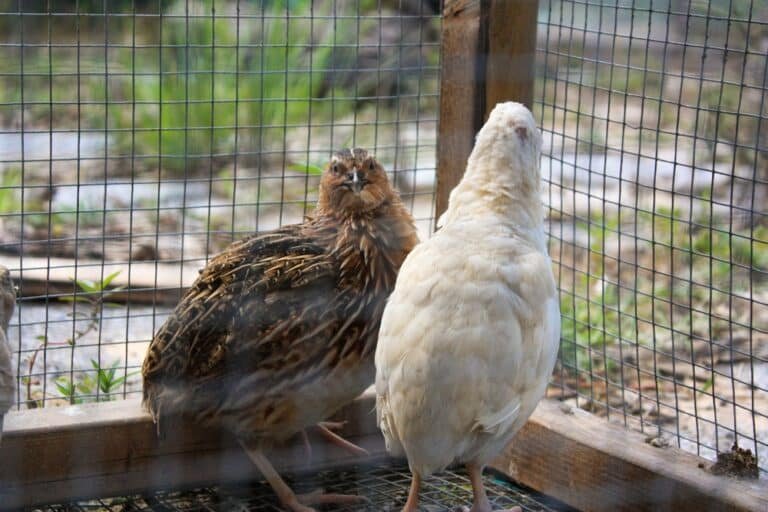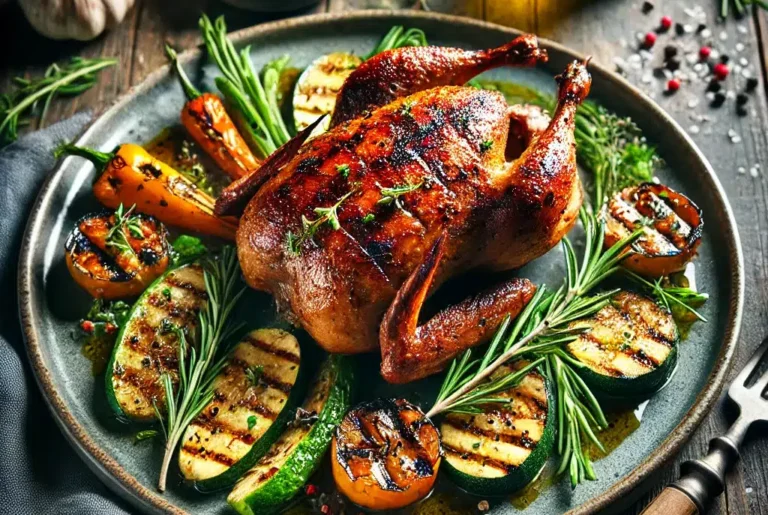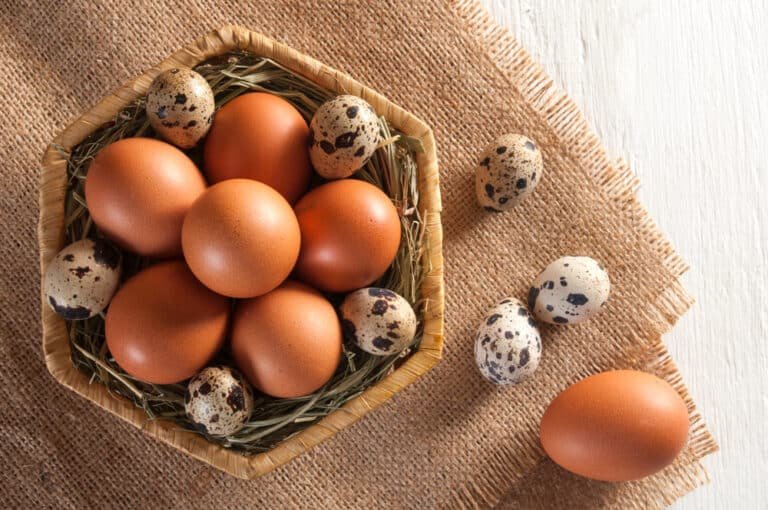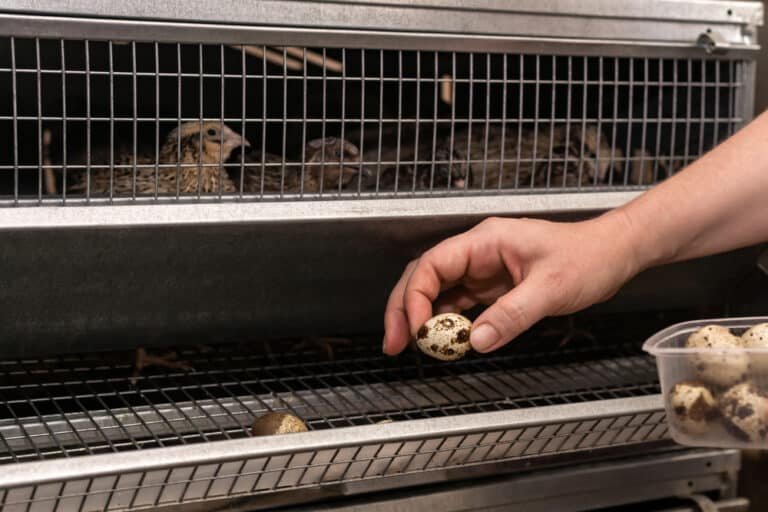Best Incubator for Quail Eggs: 5 Top Picks for 2025
The soft peeping of tiny quail chicks fills your room as morning light streams through the window. You smile, knowing those little fluffballs are there because of you and your trusty incubator. Sounds like a dream, right? Well, with the best incubator for quail eggs, it’s a dream you can live.
We’ve hatched more quail eggs than we can count, trying every incubator under the sun. Some were great, others… not so much. Now we’re here to share that hard-won knowledge with you. Whether you’re a first-time hatcher or a seasoned pro looking to upgrade, we’ve got the scoop on the top quail egg incubators of 2024.
Let’s turn those speckled eggs into chirping chicks, shall we?
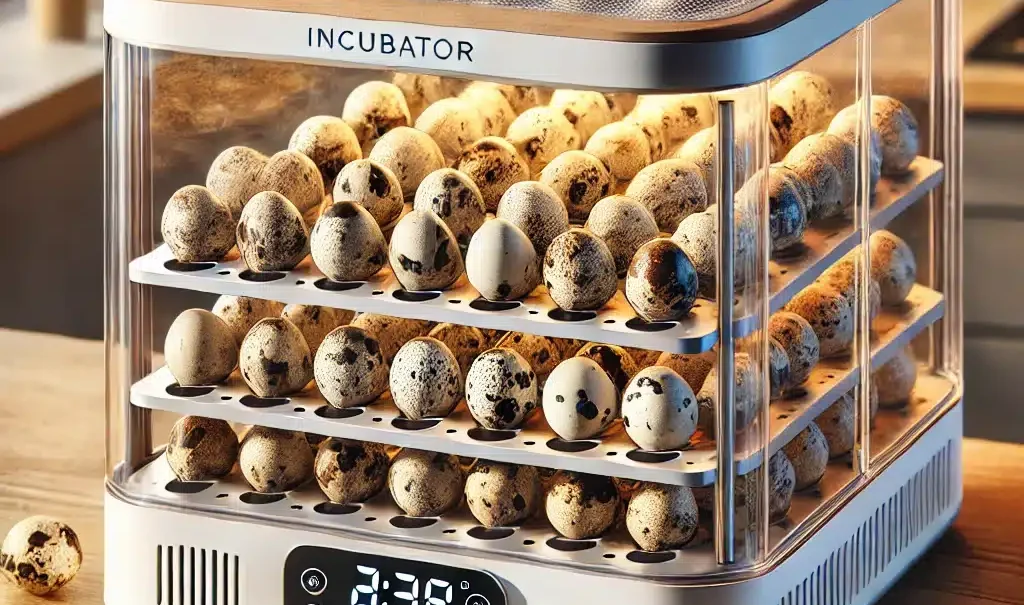
Hey there, fellow backyard farmer! So you’ve caught the quail-raising bug, huh? Welcome to the club! There’s something magical about these little birds and their adorable speckled eggs. But here’s the thing: turning those eggs into fluffy chicks takes more than just hope and a warm windowsill. That’s where a good incubator comes in.
Now, I know what you’re thinking. “Aren’t all incubators pretty much the same?” Well, not quite. When it comes to quail eggs, size does matter – and I’m talking about the incubator size, not the eggs! These little powerhouses need special care, from the right temperatures to perfect humidity levels.
In this post, we will crack open the world of quail egg incubators. We’ll look at the five best options out there for 2024, whether you’re hatching your first clutch or dreaming of a quail empire. We’ll cover everything from budget-friendly choices that won’t ruffle your feathers to high-tech wonders that practically do the chicken dance for you.
So, grab your favorite snack, get comfy, and let’s dive in. When we’re done, you’ll be an incubator expert, ready to choose the perfect home for your future feathered friends. Trust me, your quail eggs (and the cute little chicks inside) will thank you!
Why Quail? The Tiny Birds with Big Potential
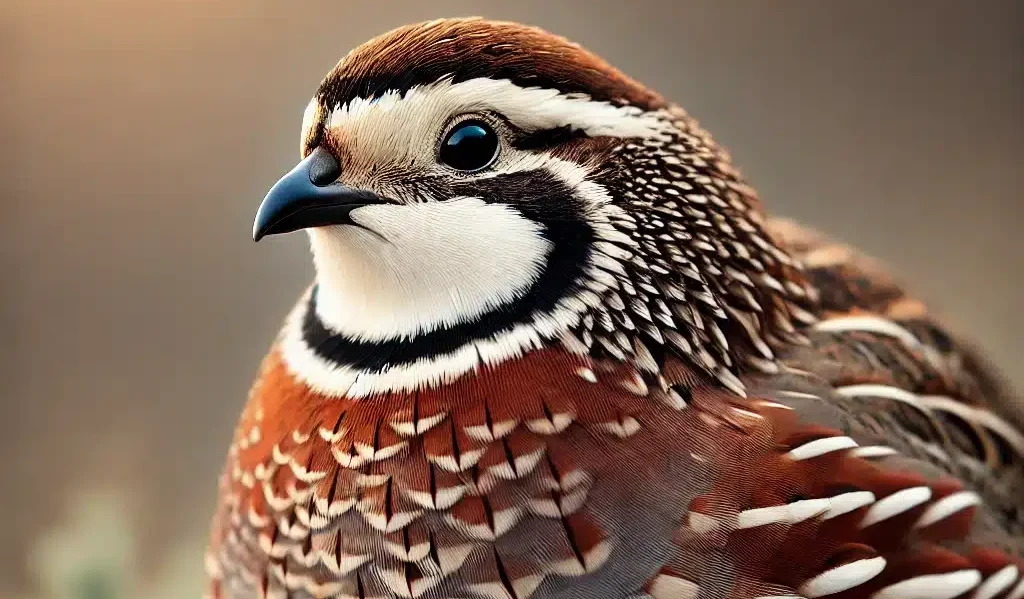
Before we dive into incubators, let’s talk about why quail are becoming the backyard farmer’s new best friend. These pint-sized powerhouses are perfect for small spaces, lay eggs like champs, and mature faster than you can say “omelet.” Plus, have you seen a quail chick? Cuteness overload!
But here’s the catch – quail eggs need special care to hatch successfully. That’s where a good incubator comes in handy. Unlike chicken eggs, quail eggs are smaller and more delicate. They need precise temperature control, humidity, and gentle handling. Get these factors right, and you’ll be on your way to Quail Town, population: adorable.
What Makes a Great Quail Egg Incubator?
Now, not all incubators are created equal, especially when it comes to quail eggs. Here’s what you need to look for:
- Size Matters: Quail eggs are small, so you want an incubator to hold a good number without overcrowding. Look for models with quail egg-specific trays.
- Temperature Control: Quail eggs like it hot – about 99.5°F to be exact. Your incubator should maintain this temperature consistently.
- Humidity Hero: These eggs need about 45% humidity until the last few days, when it should jump to 65%. A good incubator makes managing humidity a breeze.
- Turn, Baby, Turn: Eggs must be turned several times daily. Automatic turning is a lifesaver, trust me.
- Clear View: A viewing window lets you check on your eggs without opening the incubator and messing with the environment.
Our Top 5 Picks for the Best Incubator for Quail Eggs
- The Pro’s Choice: Brinsea Ovation 56 EX Fully Automatic Egg Incubator For serious quail breeders, this incubator is the cream of the crop.
- The Budget-Friendly Option: Incubator for Hatching Eggs This incubator is Perfect for beginners. It won’t break the bank but still gets the job done.
- The Tech Wizard: Manna Pro Harris Farms Egg Incubator This incubator is for those who love gadgets. It has all the bells and whistles.
- The Space Saver: 12 Egg Incubator Living in a small apartment? This compact incubator is your new best friend.
- The All-in-One Package: CT180SH Egg Incubator. Everything you need to start hatching right out of the box.
The Budget-Friendly Option: Incubators for Hatching Eggs
Product Features
- Holds 12 eggs
- Transparent top cover
- Automatic egg turning
- LED display for temperature monitoring
- Egg candle holder for embryo observation
- Automatic water injector
- Durable ABS material
- Silicone heating wire for precise temperature control
- Easy to use and clean
- Improves hatch rates
The All-in-One Package: CT180SH Egg Incubator
Product Features
- Automatic egg turning
- Humidity control
- Transparent cabinet
- LED display
- Egg candle holder
- Automatic water injector
- Durable construction
- Easy to use
- Improves hatch rates
- Temperature and humidity control
- Convenient observation
- Versatile for various poultry eggs
The Tech Wizard: Manna Pro Harris Farms Egg Incubator
Product Features
- Capacity: Holds up to 22-24 eggs.
- Automatic egg turning: Ensures even hatching.
- Temperature and humidity control
- 360° visibility
- Egg candle holder: For monitoring embryonic development.
- User-friendly controls: Easy to operate.
- Improves hatch rates
- Ideal for backyard enthusiasts, farmers, and hobbyists
The Pro’s Choice: Brinsea Ovation 56 EX Fully Automatic
For serious quail breeders, this incubator is the cream of the crop.
Product Features
- Easy-to-use digital controls: Monitor temp, humidity, and egg turning status.
- Automatic humidity control: Built-in pump maintains optimal levels.
- Programmable egg turning: Customize settings for different egg types.
- Versatile capacity: Accommodates various egg sizes
- Durable construction: Made with hygienic ABS plastic for easy cleaning.
The Space Saver: 12 Egg Incubator
Living in a small apartment? This compact incubator is your new best friend.
Product Features
- Stable temperature: A powerful fan ensures even heat distribution.
- Humidity monitoring: Built-in hygrometer tracks humidity levels.
- Egg candling: Integrated feature for observing egg development.
- External water refill: There is no need to open the lid for water.
- Automatic egg turning: Stops three days before hatching.
Pro Tips for Incubator Success
- Prep Like a Champ: Before you put those speckled beauties in your incubator, clean it thoroughly. Use a mild disinfectant and make sure it’s completely dry. Trust me, starting with a clean slate (or, in this case, a clean incubator) makes all the difference.
- The Pre-Game Warm-Up: Don’t just plug in your incubator and toss the eggs. Run it empty for 24 hours to stabilize the temperature and humidity. It’s like preheating your oven, but it’s way more important.
- Egg-cellent Selection: Not all eggs are created equal. Choose eggs that are clean, well-shaped, and free from cracks. Abnormally large or small eggs? Save those for your breakfast omelet.
- Turn, Baby, Turn. If your incubator has no automatic turner, you must turn those eggs by hand. Aim for at least 3-5 times a day. It might seem like a pain, but it prevents the embryo from sticking to the shell. Think of it as your quail egg exercise routine.
- Humidity: The Goldilocks Zone Quail eggs are picky about humidity. Aim for about 45% humidity for the first 14 days, then crank it up to 65% for the last three days. It’s like creating a mini spa for your eggs.
- Hands Off! I know it’s tempting to peek but resist the urge to open your incubator unnecessarily. Every time you do, you mess with the carefully controlled environment inside.
- The Candling Ceremony: Try candling your eggs around days 6-8. This means shining a bright light through them to check for development. It’s like an ultrasound for eggs, and seeing those little embryos growing is pretty cool.
Common Mistakes to Avoid
- The Oops of Opening Opening the incubator too often is like leaving your front door open in winter—it affects the temperature and humidity.
- The Water Woes Forgetting to add water to maintain humidity is a rookie mistake. Set reminders if you need to!
- The Cleanliness Crisis Skipping the cleaning step can lead to bacterial growth. Nobody wants that.
- The Temperature Tango Fluctuating temperatures can spell disaster for developing eggs. Keep it steady, folks.
Success Story: Sarah’s Quail Quest
Meet Sarah, a first-time quail raiser who started with the HatchMaster Mini. “I was so nervous at first,” she says. “But once I got the hang of it, it was addictive! Seeing those little chicks hatch was the best feeling ever.”
Sarah’s top tip? “Don’t obsess over every little thing. Set your incubator upright, follow the guidelines, and trust the process. Nature knows what it’s doing.”
Wrapping It Up
Whether you’re a tech-loving gadget guru or a budget-conscious beginner, there’s a quail egg incubator. Remember, the best incubator is the one that fits your needs and that you’ll use consistently. Happy hatching, fellow quail enthusiasts!
FAQs
Q: How long does it take for quail eggs to hatch?
A: Quail eggs typically hatch in about 17-18 days.
Q: Can I use a chicken egg incubator for quail eggs?
A: While possible, it’s not ideal. Quail eggs need higher temperatures and more frequent turning than chicken eggs.
Q: What temperature should I set my incubator to?
A: Aim for 99.5°F (37.5°C) for quail eggs.
Q: How often should I turn quail eggs?
A: Use an automatic turner at least 3-5 times a day.
Q: What do I do if the power goes out?
A: Try to maintain the temperature as best you can. Wrapping the incubator in blankets can help retain heat until power is restored.

